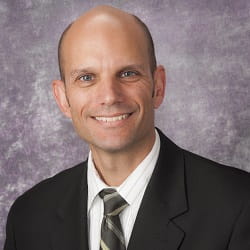
9/16/2021
PITTSBURGH – Adolescents who undergo early vestibular rehabilitation in conjunction with behavioral management treatment experience a more pronounced improvement in concussion symptoms than those treated only with a behavioral management program, according to new research led by the University of Pittsburgh and UPMC Sports Medicine Concussion Program.
The results, published online in Journal of Pediatrics showed significant improvements when vestibular rehabilitation was added to the treatment protocol.
 “Precision interventions targeting vestibular symptoms and impairment in adolescents following a concussion are effective in reducing those symptoms and impairments, above and beyond the positive effects of across-the-board behavioral management interventions,” said lead author Anthony Kontos, Ph.D., research director at UPMC’s Sports Medicine Concussion Program.
“Precision interventions targeting vestibular symptoms and impairment in adolescents following a concussion are effective in reducing those symptoms and impairments, above and beyond the positive effects of across-the-board behavioral management interventions,” said lead author Anthony Kontos, Ph.D., research director at UPMC’s Sports Medicine Concussion Program.
Vestibular symptoms and impairments include dizziness, imbalance and vertigo. These symptoms have been associated with worse clinical outcomes and a longer recovery time in adolescents.
The researchers analyzed 55 participants between the ages of 12-18 years—all with a diagnosed sport-/recreation-related concussion with vestibular symptoms/impairment. The patients were randomized into a four-week behavioral management control group with prescribed management strategies focused on physical activity, sleep, hydration, nutrition and stress management or a vestibular intervention group that included the behavioral management program and additional prescribed precision rehabilitation exercises. Both groups experienced improvement; the most pronounced effect was found in stabilization of vertical eye movements, with the vestibular treatment group experiencing nearly double the improvement of the control group.
 “These findings provide a strong foundation for new research to determine the most effective frequency, intensity and timing for vestibular rehabilitation to better inform clinical practice guidelines,” said senior author Michael “Micky” Collins, Ph.D., executive and clinical director of UPMC’s Sports Medicine Concussion Program.
“These findings provide a strong foundation for new research to determine the most effective frequency, intensity and timing for vestibular rehabilitation to better inform clinical practice guidelines,” said senior author Michael “Micky” Collins, Ph.D., executive and clinical director of UPMC’s Sports Medicine Concussion Program.
Co-authors include Michael Collins, Ph.D., Shawn R. Eagle, Ph.D., Anne Mucha, D.P.T., Victoria Kochick, D.P.T., Jessica Doman, D.P.T., Claire Moldolvan, D.P.T., Cyndi Holland, M.P.H., and Nicholas Blaney, B.S., all of University of Pittsburgh.
The research was funded by the Chuck Noll Foundation for Brain Injury Research.
PHOTO INFO: (click images for high-res versions)
PHOTO INFO: (click images for high-res versions)
CREDIT BOTH: UPMC
Top:
CAPTION: Anthony Kontos, Ph.D., research director, University of Pittsburgh and UPMC Sports Medicine Concussion Program.
Bottom:
CAPTION: Michael “Micky” Collins, Ph.D., executive and clinical director, UPMC’s Sports Medicine Concussion Program.
















